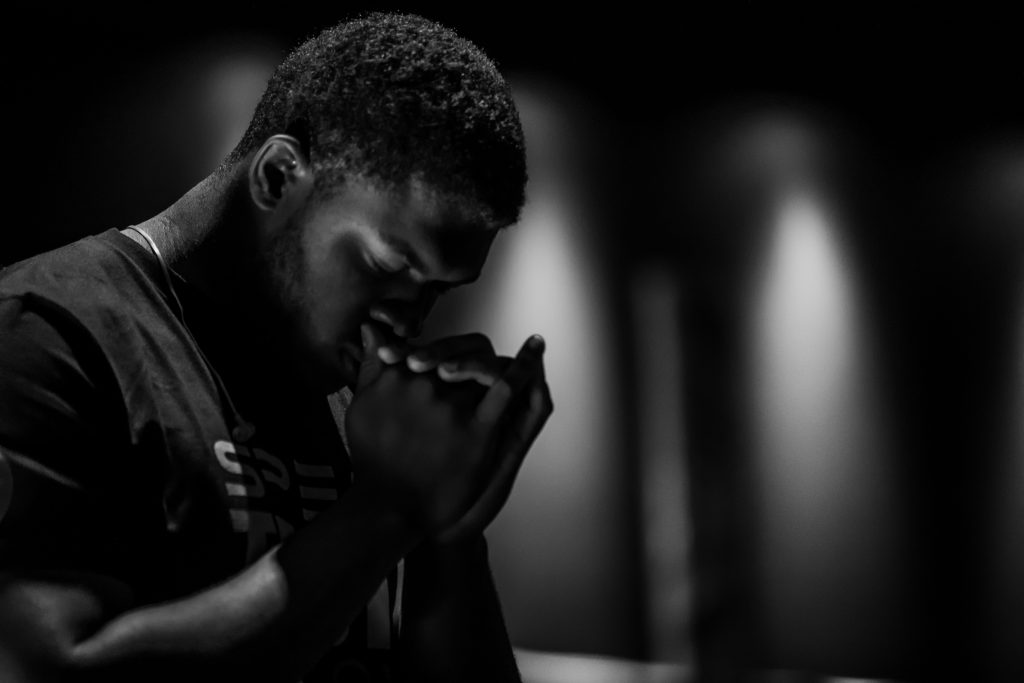I’m writing this from Shanghai into the 6th week of city-wide quarantine. To add some context Shanghai has nearly 30 million people. This is just under half the population of the United Kingdom. A quarantine of this magnitude has never been seen before in human history. In itself, it is an experiment.
Having said this, today, as I write this (12th of March) no new cases have been reported. Less than 700 people have been infected and 300 of them have recovered with the rest still in the hospital. There have been 3 fatalities.
Right now, the virus is in Europe where numbers seem to be increasing at a rapid rate. I fear European are in far graver danger than I am in China. I say this because of the precautions and measures that have been taken and are able to be taken in a single-party communist nation compared to democratic, multiparty governments.
With all of this said how should a Christian respond to this new pandemic?
1. Prayer
In the face of fear Christians pray. Jesus before going to the cross prayed in Gethsemane (Matthew 25). Paul and Silas in prison ‘prayed and sang hymns’ (Acts 16). Daniel in response to a change in the law ‘prayed’ (Daniel 6). Christians in the face of danger and in the face of fear, pray. If like me sometimes you wonder how to pray appropriately in a time like this, you are not alone. Luke 11 shows the disciples were also unsure on how to pray. The format of the Lord’s prayer is to Adore God for WHO he is, confess our sins, fears, burdens, thank him for his provision and Supplicate him with our requests (this is commonly known as ACTS). Confessing our fears in times like this is imperative as it is a reminder to us of our need for deeper reliance on God and trust in who he says he is, and what he says he will accomplish. Sometimes this is a simple Mark 9:23-25 cry of “help my unbelief”. Notice how Jesus’s response was carefully measured and comforting.
2. Use The COVID-19 to Explain and Share The Hope You Have
The Coronavirus has been provided infinite amounts of Gospel sharing opportunities. This has been and will be a time to share with friends, family and close ones the reason for the hope we have and a chance to share our assurance that God is who he says he is.
In your workplace, university and community there will be people who are struggling with fear and anxiety. Graciously be a comforting neighbour, sympathising with their fears, and maybe God will open an avenue for you to share the reason for your hope.
In the west, with the high number of elderly people, this is an opportunity for Christians to really make an impact in terms of caring for our neighbours in more practical ways.
Are there members of your church who would be helped by you delivering their shopping? Could you even go further and cook these meals for them?
Is your friend going to be bored during this time? Would sending/gifting them a book help?
Could you help clean your church building early on Saturday morning in preparation for the service? Could you help by cleaning it after?
Practically there are infinite ways that the COVID-19 virus has opened up doors and avenues to love people practically.

3. Practical Wisdom
Wisdom may dictate that you should not attend Church on Sunday. Wisdom may dictate that you refuse to go into work if instructed. Wisdom may dictate that you ‘hyper’ quarantine limiting interactions with members of your family.
But here are a few practical pointers to consider.
Christians do not act out of self-preservation but love
- Romans 15 talks of the strong, protecting the weak. All our decisions should be made from this heart posture. As such it Is also possible to persevere in attending church etc in order to serve the weak or be served. If you are young it may even be wiser for you to stay at home and protect those older and with underlying health conditions. Such a decision would be made out of love and not self-preservation.
Christians should encourage others to prepare and respond to trouble not to worry about it
- Jesus constantly reminded his followers that the day of his death, their biggest fear, was coming and it ultimately came. In John 16 one of his final words he warns that they will face ‘tribulation’ but not to ‘fear as he has overcome the world.’ The greatest fear any of us should have is a life without Christ. This isn’t true if you have repented and believed and thus ultimately as we face ‘tribulation’ we can do so knowing that biggest issues, our sin, has been dealt with.
Christians ultimately trust God
- In conclusion, Christians are able to turn and say to God that whatever my God ordains is right and that he is good. In the end, we should be able to thank God for all he has done and is doing and will do.
There is no shame in minimising human contact. But like all decisions, we should make them prayerfully, biblically, under the guidance of church elders and in the community and network of believers.

4. Confess Fears and Anxieties to God
Fear is not a demon. Fear is a natural reaction to the face of danger. Anxiety over the future is not uncommon among believers of old and today. However, our response in the face of danger is telling of our understanding of who God is and what his intentions and plans for us are. Faith is an ambiguous word which in a modern sense is better translated as reliance.
To repent (turn away from self-reliance) and have faith (rely on God for our every need, thought and action), is what saves (Mark 1:15). In Matthew 6, Jesus calls for his followers to rely on God’s provision. In the Proverbs we are called to understand God’s control of all things including those under the power of Satan (Job 1, Proverbs 21:1, Romans 8:28). John Piper famously said that Satan is like a mischief monkey on a leash. He can cause damage in the world but only with the permission and under the restraining hand of God.
For Christians, this means that our hope shifts from this life to the next. For Christians, this means that if you die before getting to the end of this post you will be with the Lord (AMEN!). If you survive, you have the opportunity to be used by him for his purposes. We should be hard pressed between the two like the Apostle Paul (Phil 1:23)
In light of this truth, we can confess our fears and anxieties to a God that cares. Psalms 34 is a model of this. David seeks the Lord’s guidance and finds him willing and able to deliver him from fear.
